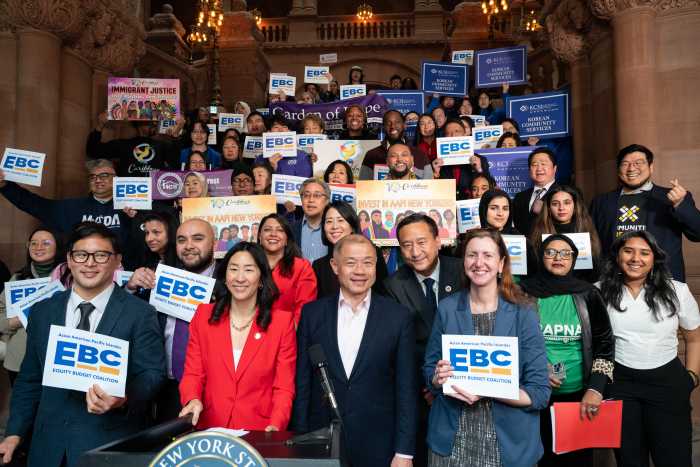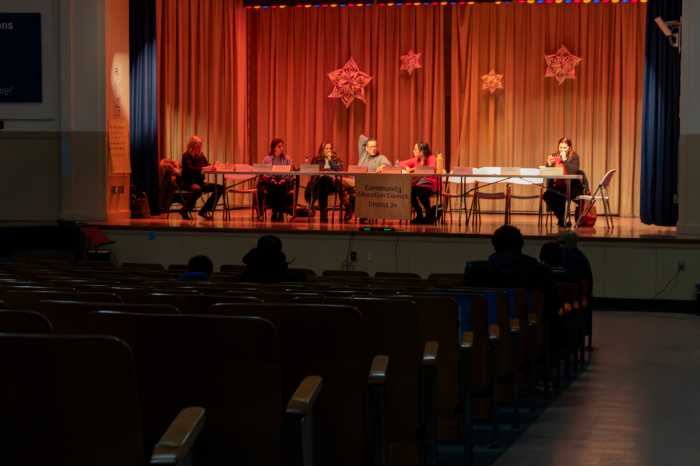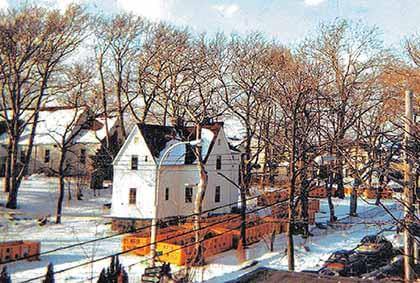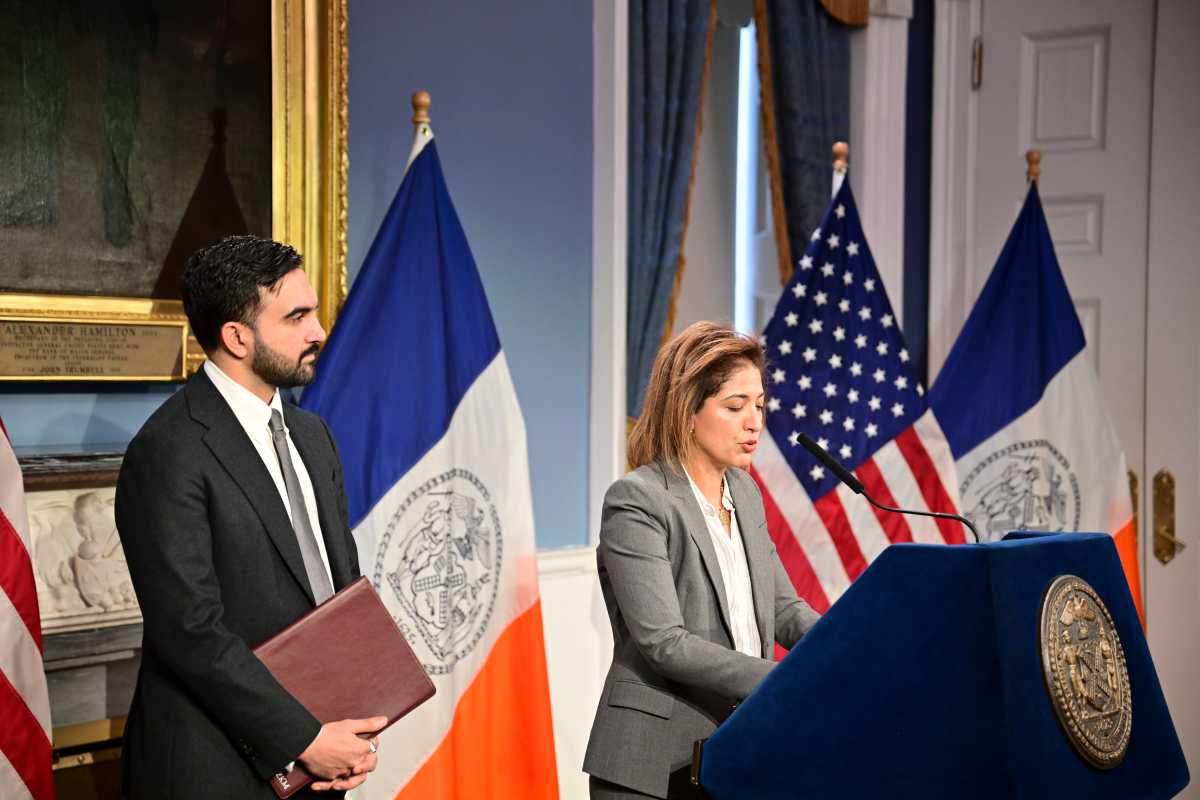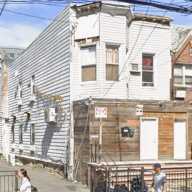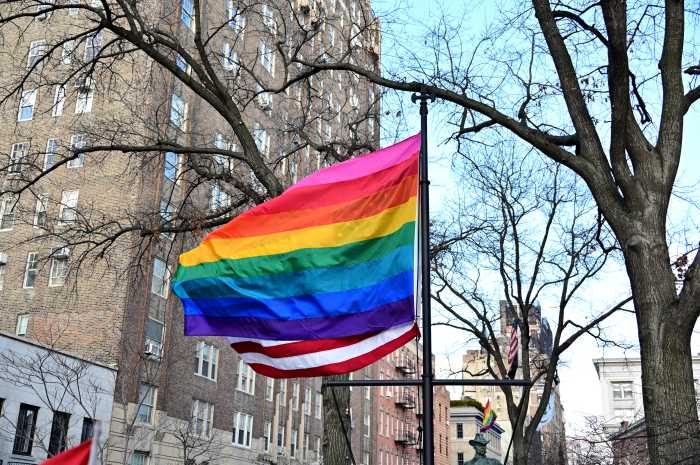By Alex Robinson
NYCHA officials announced they are reviewing certain aspects of their so-called “rightsizing” policy after a grilling by City Councilman Rory Lancman (D-Fresh Meadows) at an oversight hearing last week.
The policy is the New York City Housing Authority’s method of moving tenants living in apartments deemed “under-occupied” into smaller units to make space for crowded families.
Controversy flared recently over the issue in Pomonok Houses in Flushing, where a number of seniors were recently issued letters instructing them to request transfers from the apartments They had lived in for decades.
“This is a policy I straight up oppose and think is terribly wrong-headed,” Lancman said at the hearing.
Almost 40 percent of NYCHA’s 178,557 households live in apartments that are not the correct size for their family composition, according to the Housing Authority. NYCHA defines apartments with tenants having one extra bedroom as “under-occupied” and those with two or more extra bedrooms as “extremely under-occupied.”
“Ensuring that every public housing family is in an apartment of appropriate size presents a huge challenge, one that NYCHA has wrestled with over the years,” NYCHA General Manager Cecil House said at the hearing. “While NYCHA understands that this hearing was called out of concern for residents in under-occupied apartments, NYCHA constantly strives to appropriately balance the interests of our residents in under-occupied apartments with those in overcrowded apartments.”
NYCHA’s policy does not require residents to move if the larger apartment is needed to store or contain equipment for a person’s health or if relocating would pose a direct threat to their life because of a medical condition.
“It is the most draconian policy that I have every seen or heard of in all my years in government,” Lancman said. “Framing exemption standards using a life or death model ignores some very real quality-of-life concerns. By moving residents with other debilitating conditions — Alzheimer’s, depression, asthma, high blood pressure, anxiety, just to name a few — we are ignoring the likelihood that such conditions will be exacerbated by a forced relocation.”
Lancman called on NYCHA to stop downsizing any more tenants until it changes this policy.
“That policy is under review,” House said. “I do expect it to be modified as we move forward. We have agreed to modify our reasonable accommodation policy in other areas and we will take that under advisement and ensure we get an appropriate policy in that area.”
He did not commit to putting a halt to downsizings for the moment, but said he would take it into consideration.
House also explained NYCHA’s policy was to send letters to residents in under-occupied apartments prompting them to request a transfer, but only tenants in extremely under-occupied apartments would be required to move and would have two opportunities to choose a new unit.
Lancman, however, brought up the case of a Pomonok Houses resident who NYCHA was attempting to downsize from a four-room apartment to a three-room unit.
“I do not see how someone who has one more room than they are allotted to or what NYCHA would like to have in a perfect situation would count as extremely under-occupied,” Lancman said.
He read from a letter the tenant was sent by NYCHA telling her she must move to Queensbridge Houses in Long Island City and that she would not have another choice.
“I don’t know if you’re unfamiliar with the policy that you’re implementing or if it’s changed from December until today, but it’s clear from what I have in my hand that you are not focusing only on extremely under-occupied apartments and that you are not giving tenants two options but rather one,” Lancman said.
House responded that he would have to apologize to that resident and try to correct the situation because that is not NYCHA policy.
From 2011-13, NYCHA transferred 2,339 families, or 4,092 people, out of under-occupied apartments and 2,916 families, or 10,101 people, out of overcrowded apartments, according to the Housing Authority’s data.
NYCHA currently has 12,263 families on its transfer list.
Reach reporter Alex Robinson by e-mail at arobinson@cnglocal.com or by phone at 718-260-4566.

